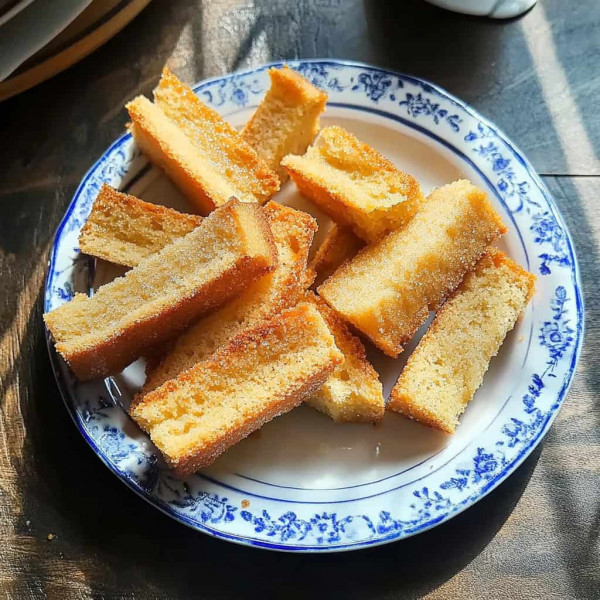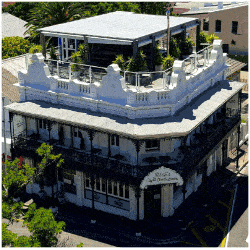News
A Collection Of Restaurant, Food, Drink And Hospitality News From All Over South Africa
To dunk or not to dunk - a rusk by any other name ...
14 April 2025
Rusks, or beskuit in Afrikaans, that popular South African snack, often enjoyed with tea or coffee has a history tied to both necessity and tradition and has become deeply rooted in South African culture.
The rusk has European origins, specifically from Dutch and British settlers who, in the 17th and 18th centuries, brought over recipes for biscuits and hard, twice-baked breads that could be stored for long periods. The name beskuit itself comes from the Dutch word "beschuit," which refers to twice-baked bread or biscuit. The harsh conditions of early colonial life meant that food preservation was important, and rusks became a practical solution as they could last for weeks or months without spoiling, making them an ideal travel or survival food for those undertaking long journeys.
As the South African population grew, especially during the 19th and 20th centuries, rusks became a widely loved snack, transcending cultural boundaries, and today they can be found in most pantries and food cupboards and come in a variety of flavours, ranging from traditional buttermilk to ones with added nuts, dried fruit, aniseed, condensed milk and even chocolate.
Swartland Kitchen, the Darling-based rusk manufacturer, recently celebrated its 5th birthday and owners Hentie van der Merwe and Frits van Ryneveld celebrated the occasion by releasing a new rusk flavour – Sunflower & Sesame. It sits alongside four existing flavours - Buttermilk, Almond & Orange, Breakfast and Breakfast (Made with No Sugar).
Says van Ryneveld: “Buttermilk is the most popular flavour although our Breakfast range comes a close second.”
Doyenne of Darling, Evita Bezuidenhout, prefers something a little more exotic and says: “There’s nothing better after waking up in the morning than dunking a Swartland Kitchen Almond & Orange rusk in a cup of hot rooibos tea.”
To dunk or not to dunk? What ‘s the sign of a good rusk?
Van der Merwe, the man responsible for fine tuning the recipes says: “I don’t know of a South African that doesn’t dunk their rusks; it is just what we do! A good rusk mustn't immediately go soggy once it’s been dipped, and it should definitely not break apart and start floating around in your tea or coffee. That’s probably the most annoying thing that can happen to me when I eat my morning rusk with my first cup of coffee for the day. Instead, a good rusk should go soft once dunked but remain complete for long enough for one to retrieve and eat it.
“Another mark of a good rusk is its taste; not too sweet, and it should have the flavour of real butter and proper, free-range eggs, just like the ones I grew up with.”
While many may think rusks are a uniquely South African treat, they are – in some form or the other – enjoyed all over the world. According to Wikipedia, they are just as popular in countries such as Sweden, where they are known as skorpor; Finland, where they are labelled korppu; Turkey, where they are called peksimet (pek meaning 'solid, tight, durable' in Turkish and simet/simit, an Arabic word meaning bread; Russia, where it is called sukhar; The Philippines, where the inhabitants enjoy something similar called biscocho; Pakistan, where they are known colloquially known as russ; Germany, where they are called Zwieback (literally 'twice baked'); The Netherlands, where the Dutch enjoy a Tvebak or two (derived from ‘tweebak’ or 'two bake'), and many more.
But it’s safe to say that nothing can beat the South African version and, in particular, the Swartland Kitchen range. And if you want further proof, then visit the Swartland Kitchen tasting room in Darling and indulge in the country’s first rusk-tasting experience, with a choice of hot drink (tea, coffee or cappuccino), three rusk flavours and two cookie flavours, all for only R60pp.
The Swartland Kitchen range is also available via their online store at www.darlingsweet.co.za as well as from independent stores, large pharmacies and coffee shops. Or, if you’re in the area, visit them at Evita Se Perron, 8 Arcadia Street, Darling.
Evita Se Perron
Darling, Western Cape South African
The Perron offers a quirky, relaxing atmosphere where you and your guests can be captivated by the fascinating relics from South Africa's rich and diverse history. The Perron offers weekend...











